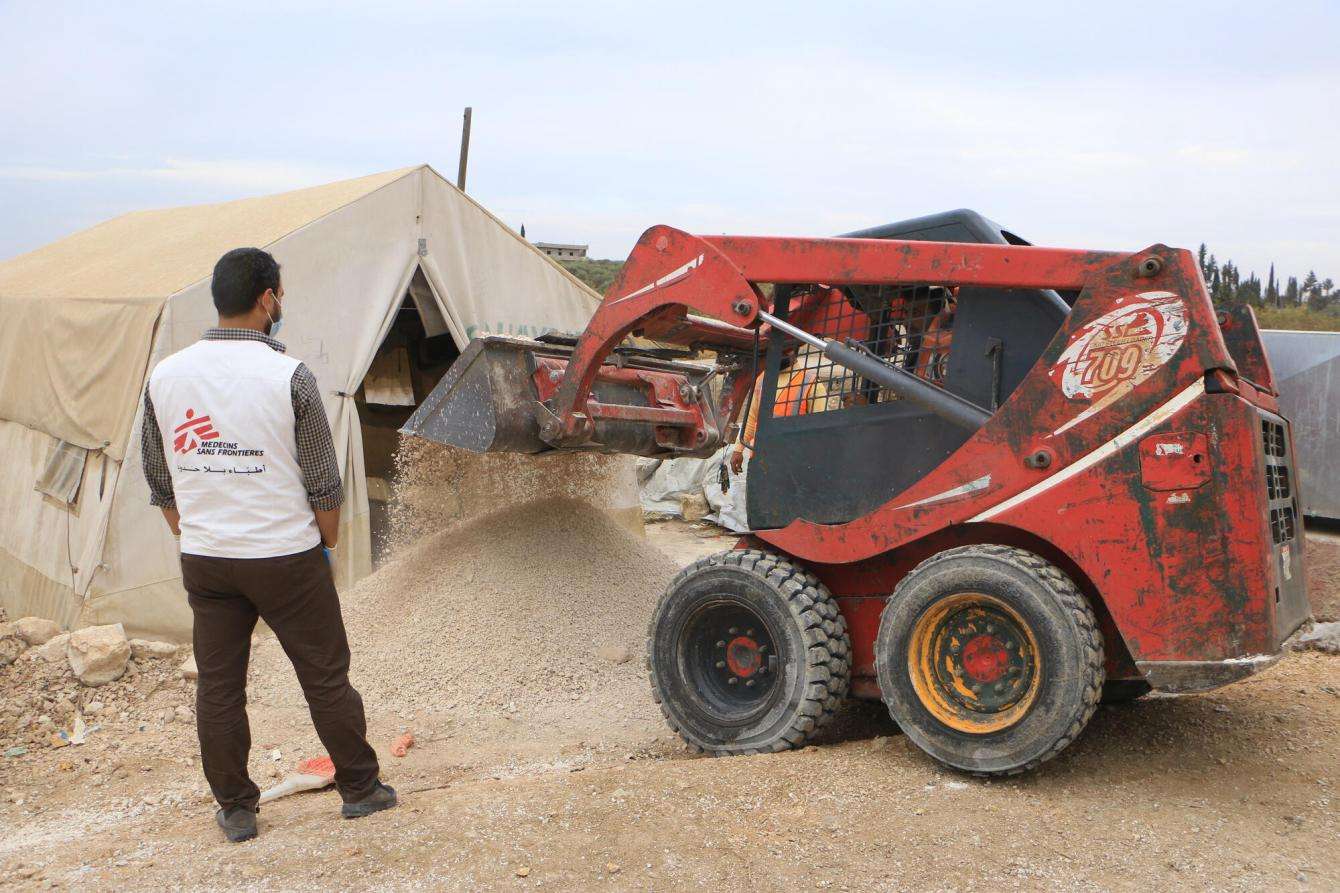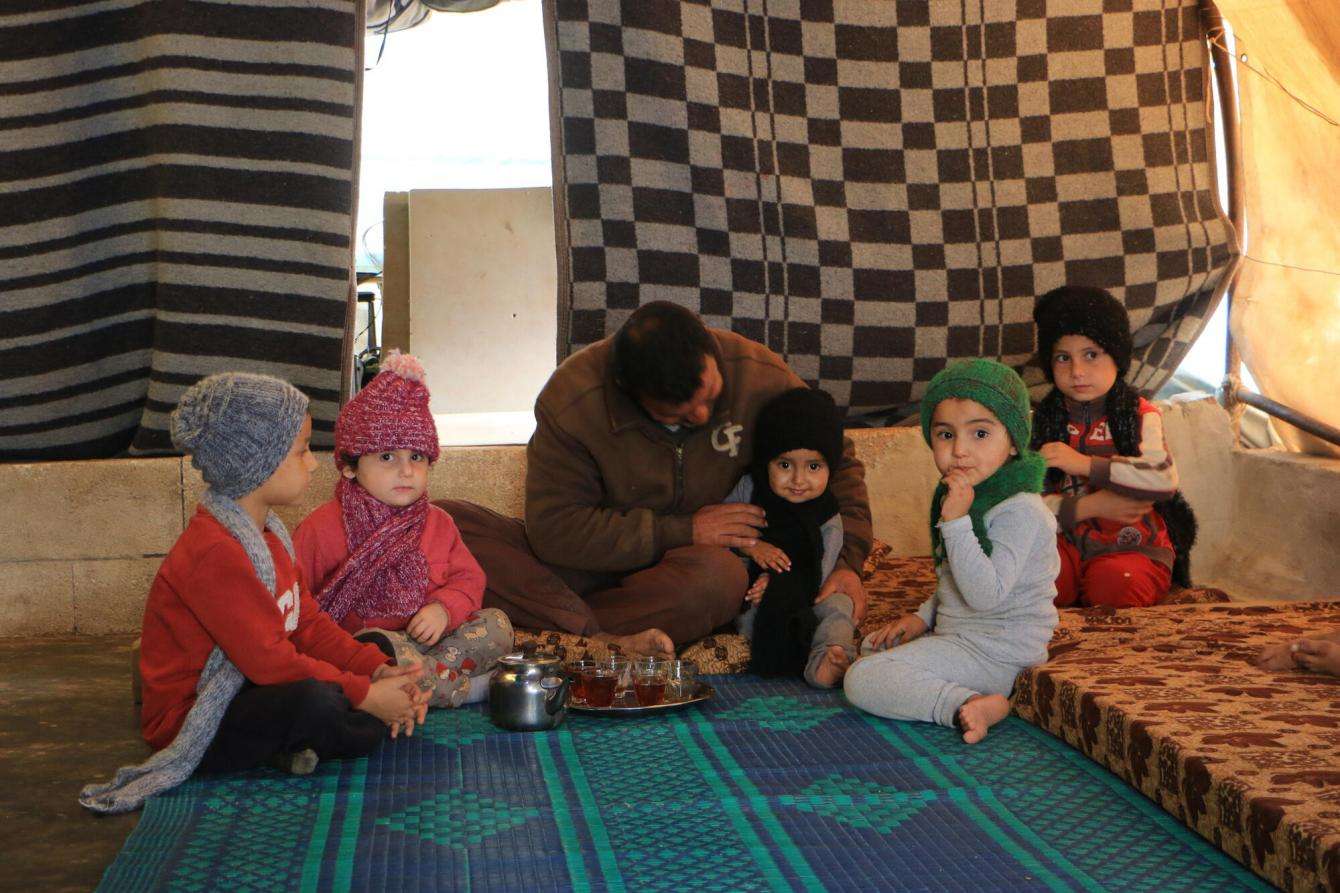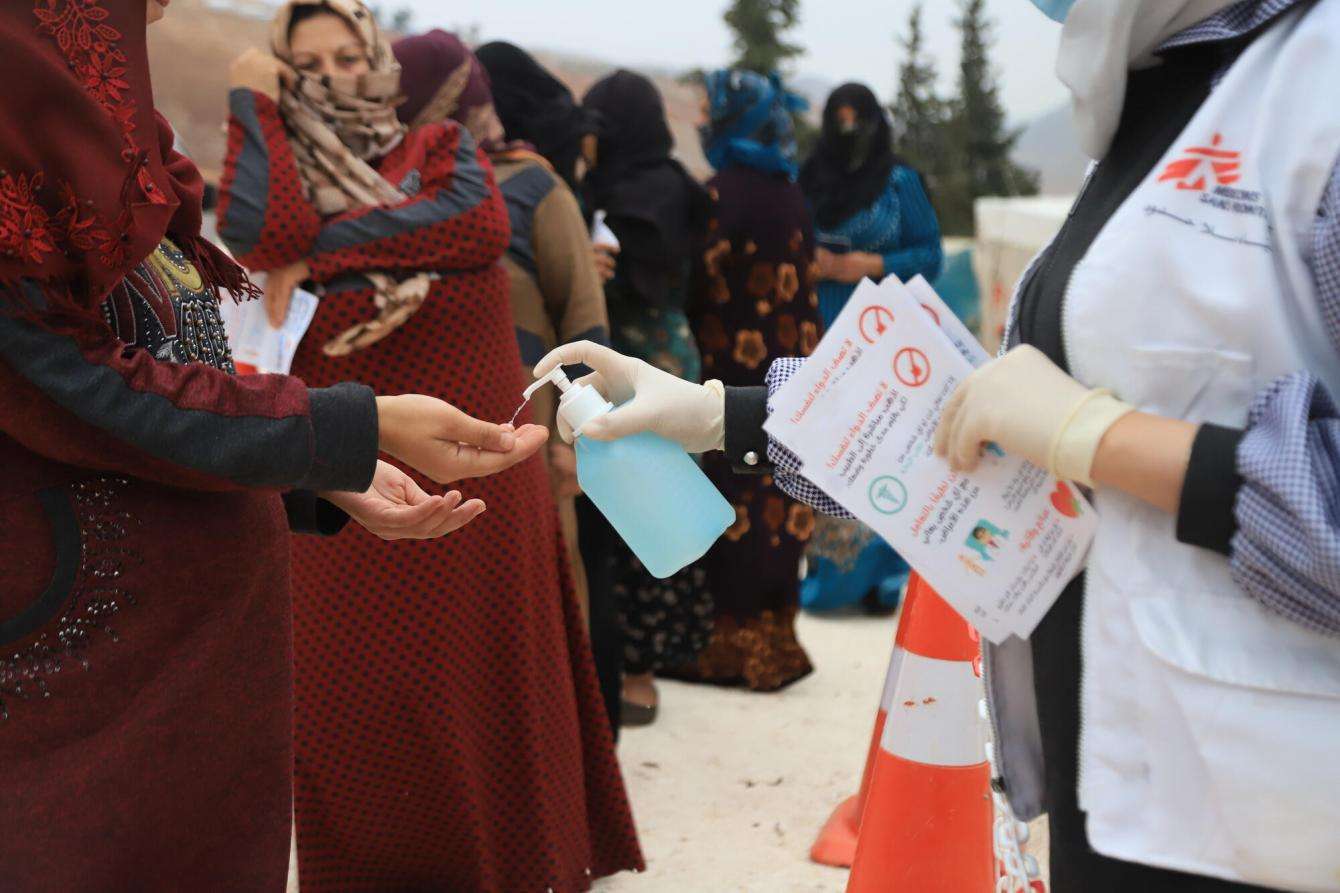At the end of 2019, Ahmad Mahmoud Merhi and his family fled airstrikes and bombings in northwestern Syria—part of a military offensive by the Syrian government and its allies that displaced nearly 400,000 people. Most of those who fled sought safety in displacement camps across Idlib province that today host more than two million people, including many children.
Two years later, Merhi and his five children are still living in a tent, lacking even the most basic living necessities, with no long-term solution in sight. “I eat, sleep, shower, cook, and do everything in [this tent],” Merhi said. “We went through hell during the summer [due to the heat]. Winter won’t be any better.” Merhi is dreading having to endure another harsh winter in the camp.
During winter, already dire living conditions and limited access to adequate shelter, basic sanitation, food, clean water, and health care become even more unbearable. Tents leak, the streets turn to mud, and freezing temperatures take a heavy toll on people’s physical and mental health.
Doctors Without Borders/Médecins Sans Frontières (MSF) teams are currently undertaking a range of activities to mitigate the impact of winter weather on displaced people in the region, including distributing kits of warm clothes and blankets to approximately 3,000 families in 18 camps and installing tent flooring, roof isolation, and thermal insulation for 3,900 families, to prevent flooding and help protect them from freezing temperatures.

“The camps located in mountain areas are especially exposed to high winds and heavy rainfall during winter,” explains MSF logistics manager Ousama Joukhadar. “Tents need insulation to be protected from rainwater and to prevent leakage. Camps located in low-lying areas are less exposed to wind but are also often severely damaged by floods.” MSF will continue running winterization activities throughout the season, including draining surface water in the camps.
Every year, MSF witnesses the direct health impact of winter in the camps. In previous years, winterization activities started too late when winter had already reached northwestern Syria—mainly due to a lack of funding. “This year, we worked hard to complete the winterization activities before the harsh winter season [began],” said Yasser Kamaledin, MSF head of mission for Syria. “We wanted people in the camps to be as prepared as possible from the beginning of the season. It is one of the most appreciated activities [we do] in the camps because of the instant impact on [people’s] daily lives. Time is a key factor for this intervention, if it is done in the middle of winter, it is already too late.”
The weather also puts people at higher risk of contracting respiratory and waterborne diseases, frostbite, and complications related to smoke inhalation or burns due to unsafe heating methods and fuel that is stored in tents. MSF documented a 30 percent increase in respiratory illnesses between autumn 2019 and winter 2019/2020 in Deir Hassan camp. Respiratory illnesses are consistently one of the top three illnesses reported in our facilities in the northwest—COVID-19 has made the situation worse.

In response, MSF has also deployed health promotion teams to spread health awareness messages about common winter diseases, assess people’s health needs, and inform them about MSF’s mobile clinic services. “Today was freezing,” said Shatha Folfola, one of MSF’s health promotion officers, after conducting a health promotion session during a winter kit distribution activity in a camp. “Everyone was cold, and we are [only in] November. People came to take the kits and left immediately. We saw children wearing light clothes—their lips and hands were turning blue. They weren’t even wearing shoes.
“The cold weather is impacting my child’s health,” said Merhi. “My son is constantly suffering from stomach aches and colds. My other child’s temperature reached 40 degrees [104 degrees Fahrenheit]. Pimples spread in his mouth, hands, and legs due to the fever. But we couldn’t afford to take him to the doctor.”
While humanitarian needs are increasing in Syria, funding to address them is drastically decreasing. The United Nations estimates that 210 million USD is required to address the essential needs of more than three million people—including both local residents and internally displaced people—in northwestern Syria during winter. However, only 23 percent of this amount is currently available.

“As long as there are camps in northwestern Syria, the needs will most likely persist every year,” said Joukhadar. “MSF is not able to respond to all of the increasing needs in the camps, especially during winter. There’s a need to accelerate the allocation of funds and implementation of the winterization activities, as early as possible, to ensure the survival of people living in the camps.”
For the last decade, MSF has adapted to continue responding to growing humanitarian and medical needs in Syria. Our teams provide trauma and wound care, maternal and child health services, and conduct vaccination campaigns aimed at preventing the spread of deadly diseases.
In northwestern Syria, MSF is currently supporting eight hospitals, including one burns unit, 12 primary health care centers, and five ambulances that are used for referrals. In addition, MSF supports 14 mobile clinics serving more than 80 camps for internally displaced people. MSF is also running water, sanitation, and hygiene activities in almost 90 camps. MSF also conducts COVID-19 testing and distributes infection prevention kits to displaced people. To counter vaccine hesitancy, MSF launched health promotion initiatives to spread awareness directly within communities as well digitally.
How you can help
Not everyone can treat patients in the field. But everyone can do something.
Some humanitarian crises make the headlines—others don’t. Unrestricted support from our donors allows us to mobilize quickly and efficiently to provide lifesaving medical care to the people who need it most, whether those needs are in the spotlight or not. And your donation is 100 percent tax-deductible.




